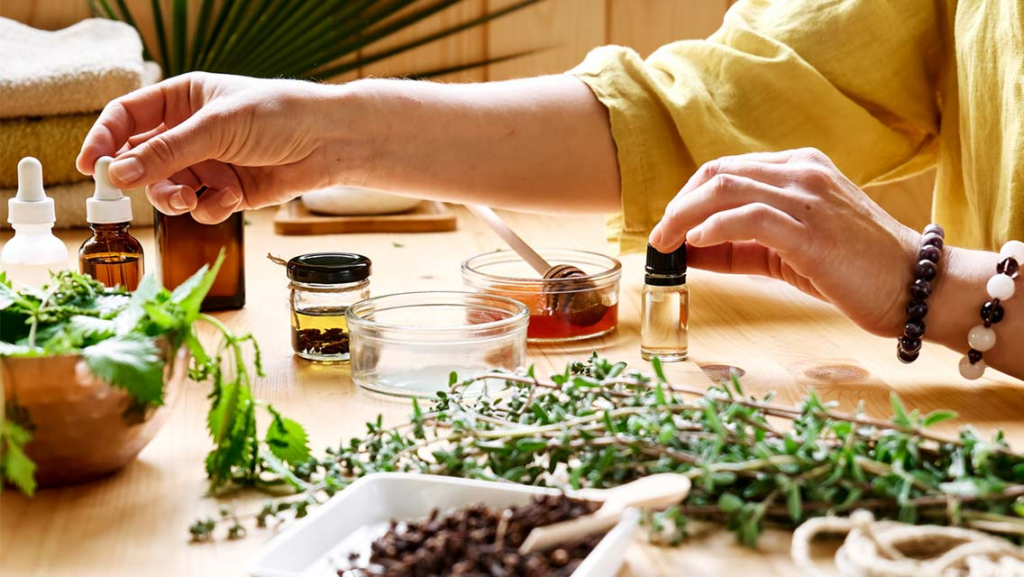Hyperpigmentation is prevailing today due to several skin and environmental conditions. Bright sun, acne, and other diseases can cause skin areas to become darker than the surroundings, causing uneven patches.
The pigmentation is due to the excess production of melanin that gives skin its brownish color. You might have heard of hyperpigmentation during pregnancy or after an injury; both situations call for a greater release of melanin to form darker tones.
Hyperpigmentation usually disrupts the skin tone by forming sunspots, acne scars, or brown patches. Try some of these hacks as follows to achieve an even skin tone.
Natural Treatments

Natural remedies are one of the best and easiest ways to treat hyperpigmentation. The anecdotal methods are used widely, and some research studies also suggest that their main ingredients do work against skin pigmentation. Let’s discover some best natural remedies that you can use:
Aloe Vera
Everyone knows of the wide use of aloe vera for several skin conditions, and pigmentation is among them.
Aloe vera contains a natural depigmenting compound known as Aloin that can help to lighten your skin tone. Studies suggest that it can work effectively as a nontoxic hyperpigmentation treatment.
All you need to do is cut a leaf and extract the pure gel. Apply to the pigmented areas before bedtime and let it stay overnight. Rinse with lukewarm water in the morning.
Remember, one-time treatment wouldn’t provide you with the desired results; you need to repeat this procedure daily until there is an improvement.
Green Tea Extract
Green tea has long been researched for its potential to improve skin, and hyperpigmentation is no exception.
Scientists have discovered green tea’s beneficial anti-inflammatory and antioxidant properties to improve skin conditions like melasma and sunburn. However, more research is needed to understand the effectiveness of green tea completely.
Apple Cider Vinegar
There is no doubt that diluted apple cider vinegar is the king when it comes to treating skin conditions at home.
The acetic acid in this vinegar effectively decreased the pigmentation by several folds. But you need to ensure mixing equal amounts of water with vinegar to avoid burning the skin.
Spread 1:1 water and vinegar mixture onto the impacted area and leave it for a few minutes before washing off with lukewarm water. Repeating the process twice a day can provide faster results without harming your skin.
Cosmetic Treatments
Scientific advancements have invented several procedures and cosmetics to help improve skin pigmentation by lightening certain areas of skin.
However, it is crucial to understand your skin condition and consult with a certified skin care specialist before adopting a certain cosmetic procedure.
The dermatologists are well versed in skin conditions and can guide you better about the treatment options, their potential advantages and risk factors as well.
Cosmetic procedures for hyperpigmentation include:
Laser Therapy

Laser treatments are indeed effective and provide faster results, but they are not free of side effects. Short pulses of concentrated light are exposed to the pigmented area to break down melanin to reduce the appearance of dark patches on the skin.
The body absorbs the broken pigment, thus reducing the pigmented appearance of the patches. The treatment is efficient and speedy, usually requiring only 3-6 sessions spaced between 4 to 6 weeks.
Chemical Peel
Chemical peels work differently from laser procedures. This procedure includes the use of concentrated acids to treat the pigmented areas.
The chemicals peel off the skin’s top layer containing melanin and reduce the appearance of pigmentation.
Some deeper versions of chemical peels also penetrate the dermis for much better results. However, the chemical peels can irritate your skin and are much more harmful as compared to other methods if not handled properly.
Medical Treatments
Medical treatment options are cost-effective compared to cosmetic products and account for fewer side effects. The most commonly used medical treatments are as follows:
Topical Options
Topical options are widely used around the globe to get the best results for the treatment of site-specific hyperpigmentation.
The well-formulated medical creams and gels like Hydroquinone are the gold standard for hyperpigmentation treatment.
Retinoids are another effective topical option for depigmentation. Retinoids are the combinations of Vitamin A and Retinol and reduce pigmentation through either inflammation, cell proliferation or differentiation. The Retinoids inhibit the induction of the melanogenesis process.
There are several other options, like Kojic acid, glycolic acid, Azelaic acid, etc, to treat hyperpigmentation.
Oral Options
Oral drugs are the second-line treatment for curing hyperpigmentation. Tranexamic acid is one of the most widely used oral drugs for hyperpigmentation.
Studies have shown that topical melatonin alone with 4% hydroquinone and oral melatonin significantly reduces pigmentation in melasma patients.
But remember to ask your certified medical practitioner to recommend some prescription drugs at the lowest price to get the best results without spending a fortune.
Key Takeaway
Although effective, natural remedies do not provide quick results like the other treatment options. Topical agents are considered the first-line option for treating hyperpigmentation. Combined with the oral agents, you can enjoy result-driven effects.
Chemical peels are the second-line treatment and show effective results; however, they account for a greater risk of side effects and are more expensive treatments.
Laser and Microneedling therapies are the third-line treatment since they have greater risks of side effects and are only recommended as the last-line treatment.

Jean Smith is a fitness enthusiast and blogger who focuses on fitness and a healthy lifestyle. She is passionate about assisting people in living healthier lifestyles and is constantly on the lookout for new and creative methods to stay fit and healthy. Her articles are excellent resources for anyone interested in improving their health and fitness.
